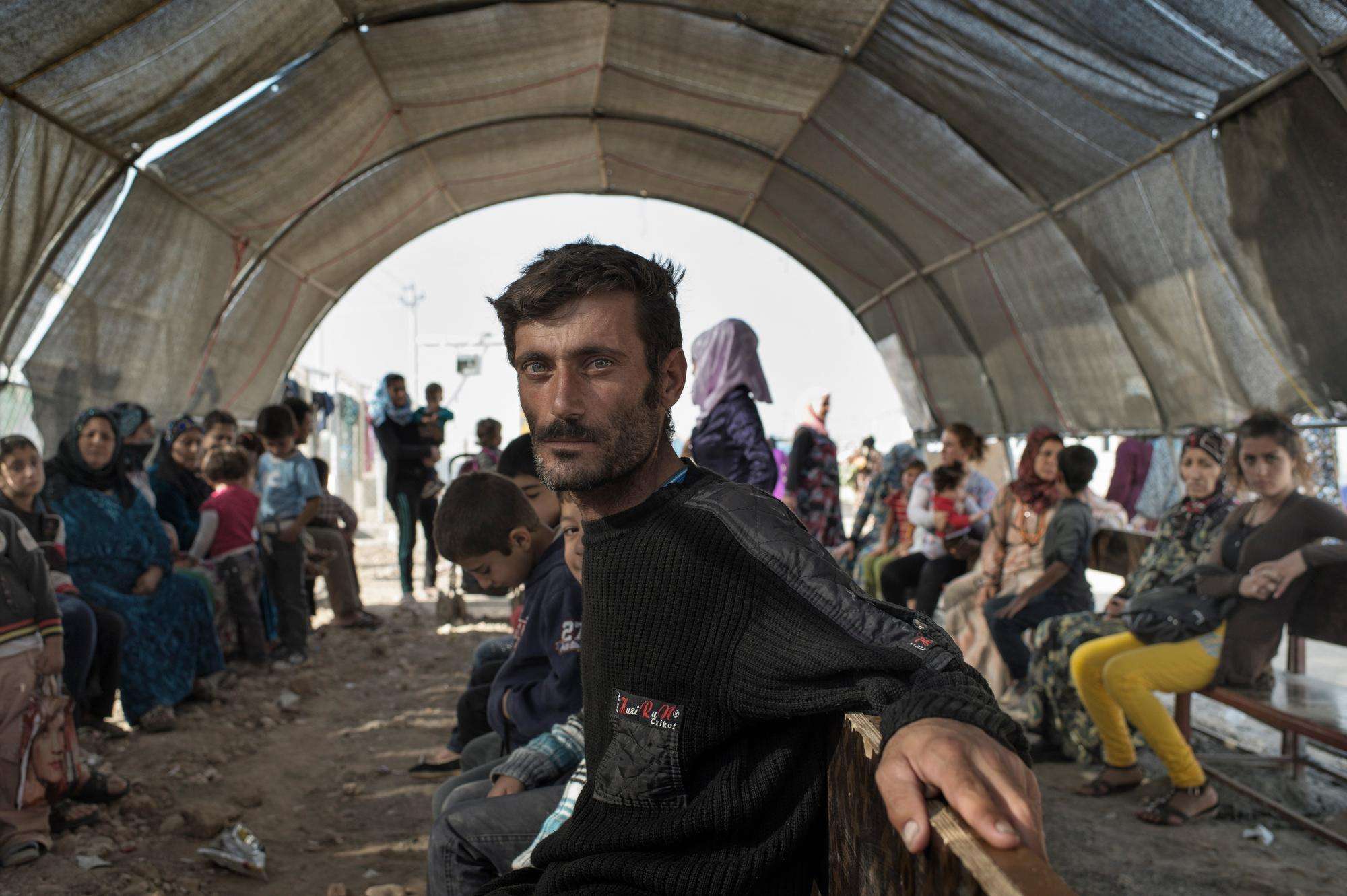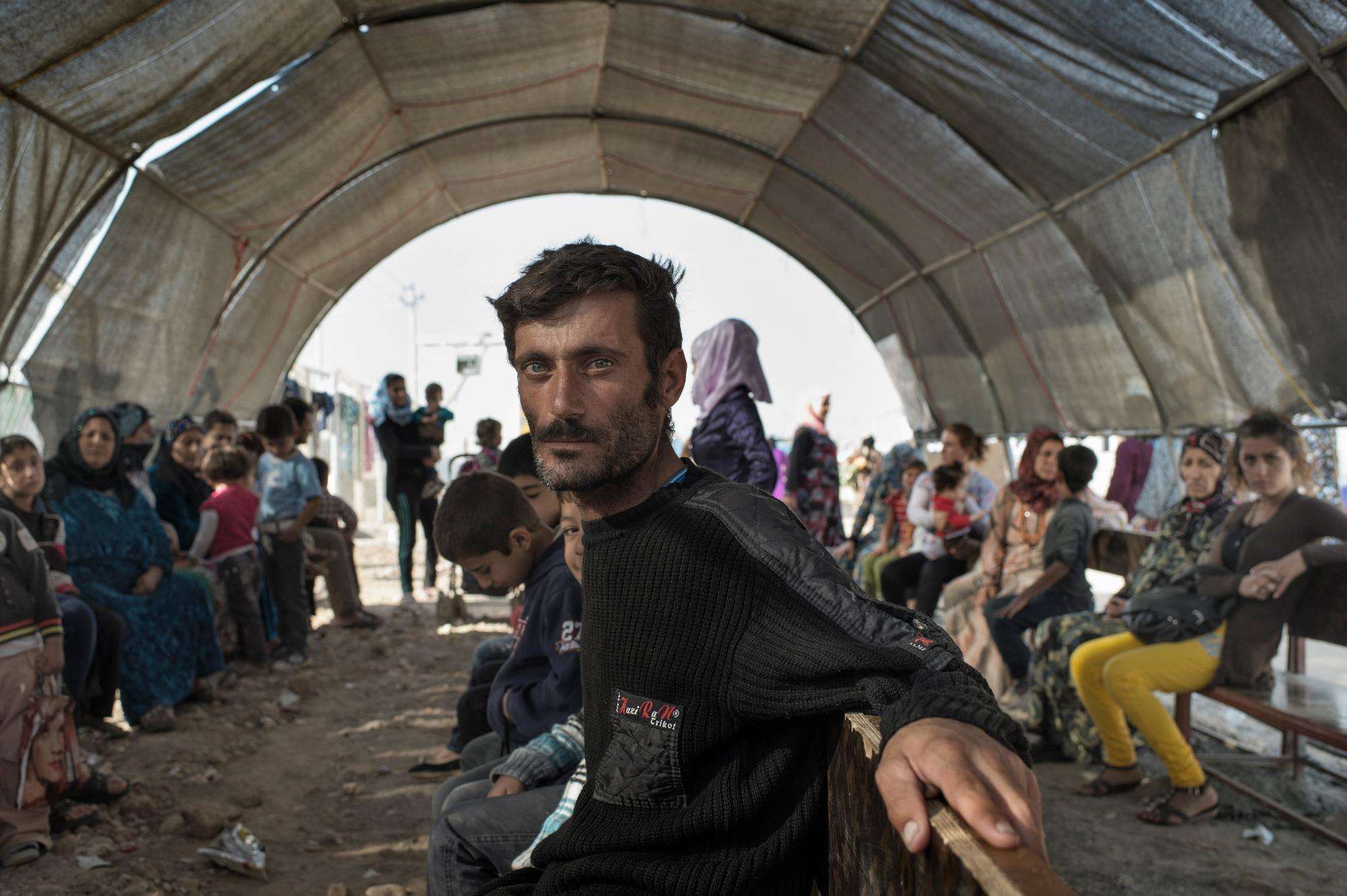NEW YORK, AUGUST 12, 2014 — The international medical humanitarian organization Doctors Without Borders/Médecins Sans Frontières (MSF) today launched "The Reach of War," a multimedia documentary feature exploring a single day in the life of the ongoing conflict in Syria, through the perspective of medical workers, patients, and refugees.
Now in its fourth year, the war in Syria has killed more than 150,000 people and driven more than nine million from their homes, nearly a third of whom have fled the country. As staggering as the figures are, they fail to convey the scope of the conflict and its ongoing impact on individual lives. By focusing on a single day, "The Reach of War" illustrates the relentlessness of the Syria conflict and the immense range of medical needs that must be addressed moment after moment in numerous locations at once.
"The war is so overwhelming that it's easy to lose sight of what it means for individual Syrians," said Dr. Joanne Liu, MSF's international president. "Working in Syria late last year, I saw children suffering from blast wounds and preventable diseases, families without proper shelter and women who could not deliver their babies in a safe environment. There is generally a lack of humanity with respect to Syria because when we talk about it, we usually talk about figures. This project bears witness to the personal toll of a brutal, relentless conflict.
"Short films, photo essays, and a narrative report convey the very personal dimensions of the conflict, as lived by Syrian refugee patients and the MSF staff members treating them. Due to insecurity, it was impossible to document these stories inside Syria.
In producing "The Reach of War," MSF collaborated with award-winning photographers and videographers, including Kate Brooks, Yuri Kozyrev, Moises Saman, Daniel Etter, and Ton Koene. Late last year, they visited MSF clinics and hospitals in refugee settlements in Domiz, Iraq; the Bekaa Valley, Lebanon; and Ramtha and Amman, Jordan to document the circumstances and the work being done through the course of a single day.
Each setting provides glimpses into the daily challenges, obstacles, and burdensome fears facing Syria's countless displaced, and, through their stories, the situation inside Syria.
In the northern Jordanian city of Ramtha, severely wounded Syrians—including children—regularly arrive at MSF's trauma surgery program. Just three miles from the Syrian border, it is within earshot of the war's explosions. Word arrives that three badly wounded patients are on their way, and Dr. Haydar Alwash, an MSF surgeon and former Iraqi refugee, cuts short a training session to prepare for surgery. "The work is really demanding, but it is what the patient needs now, not tomorrow, not another week," he says.
In the bustling Domiz refugee camp in northwest Iraq, home to at least 60,000 Syrian refugees, Dr. Mustapha Khalil, himself a Syrian refugee, is greeted in the morning by the sight of dozens of people in a waiting area outside the MSF clinic. "Every morning is like this," he says. The cameras follow him during a chaotic day of treating patients, and documents two MSF community health workers as they walk through the tightly packed warren of tents, visiting families to inform them of available health services.
Scattered across Lebanon's Bekaa valley, Syrian refugees take shelter wherever they can, from canvas tents to empty schoolhouses. Hanane Lahjiri, an MSF community health worker, travels throughout the area to learn about health conditions and share information about the services MSF provides at a local clinic. "I'm pregnant, so I'm more sensitive to their situation," Lahjiri says of the women she meets. "When a woman told me her baby died, it was very difficult. I imagined myself in the same situation.
"At MSF's reconstructive surgery project in Amman, Jordan, one of Dr. Ashraf Bustanji's patients had his leg shattered by shrapnel more than six months earlier. He was treated in Syria by a dentist, the only medical person available at the time. The doctor sometimes has to temper a patient's hope for a quick recovery.
"What we captured in just one day is but a miniscule reflection of the ever mounting human toll of the Syria conflict," says Moises Saman, a Magnum photographer who reported from Lebanon for the project. "In just this one day you see in excruciating detail the immense suffering caused by the war in Syria while being confronted with the reality that it is just a single day in a conflict that has been going on for over three years, and with no end in sight.
"MSF began working in Syria soon after the war began, first supporting medical facilities with donations of drugs and supplies, then establishing its own facilities where possible. MSF sought approval from the government in Damascus to work in Syria, but without success. Teams set up projects in opposition-held areas, primarily in the country's northern border regions. MSF also began extensive medical and humanitarian programs for Syrian refugees in neighboring countries.
Given the ferocity of the fighting and the collapse of the once-capable Syrian medical system, the acute needs are innumerable, especially with hospitals and health workers in Syria targeted.
Originally scheduled for release in January 2014, the launch of The Reach of War was delayed when MSF staff members were taken by an armed group in northern Syria on January 2. They were working in an MSF-run hospital to provide essential healthcare to people affected by the conflict. Three of the staff members were released on April 4 and the remaining two on May 14.
"The main challenge we face in Syria is delivering safe aid without excessive danger to our teams and our patients," Dr. Liu says. "The reality is that we don't have the access we need to reach most of the civilian population. We are tending to the most needy patients we can reach."
The individual "Reach of War" films and accompanying photographs are available for broadcast and republication.
Since June 2012 MSF has been running hospitals and health centers across the north of Syria. These facilities have conducted more than 10,151 surgeries, 63,440 emergency room interventions, 109,214 out-patient consultations, and more than 2,373 safe deliveries. MSF also supports 58 hospitals and 54 medical posts run by Syrian medical networks across seven governorates. Insecurity makes it extremely challenging to provide direct on-the-ground medical services, and while some reductions in MSF activities are underway, the organization continues to prioritize direct assistance wherever possible. In Iraq, Jordan, and Lebanon MSF operates large-scale medical programs for Syrian refugees, with more than 587,000 medical consultations conducted so far.





